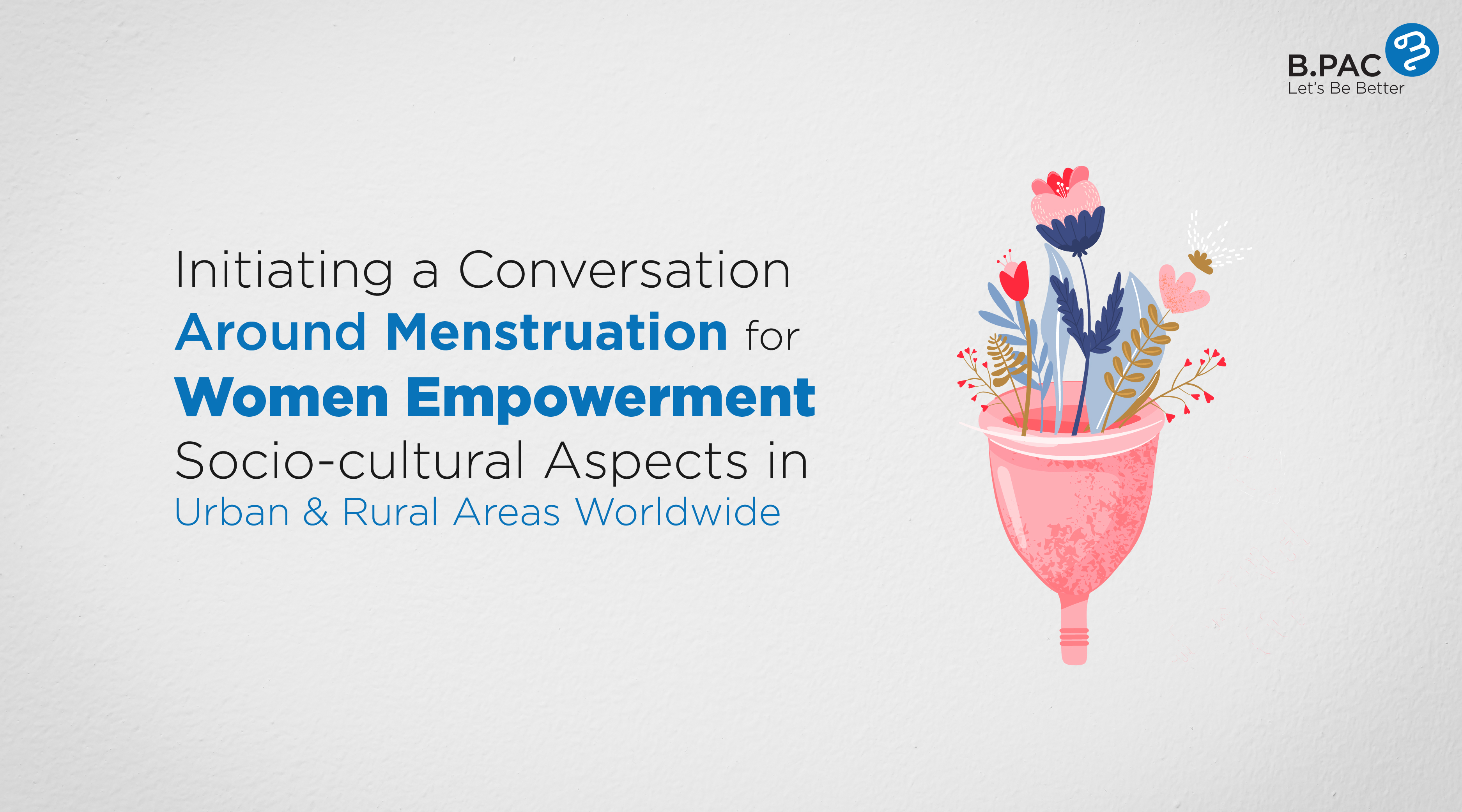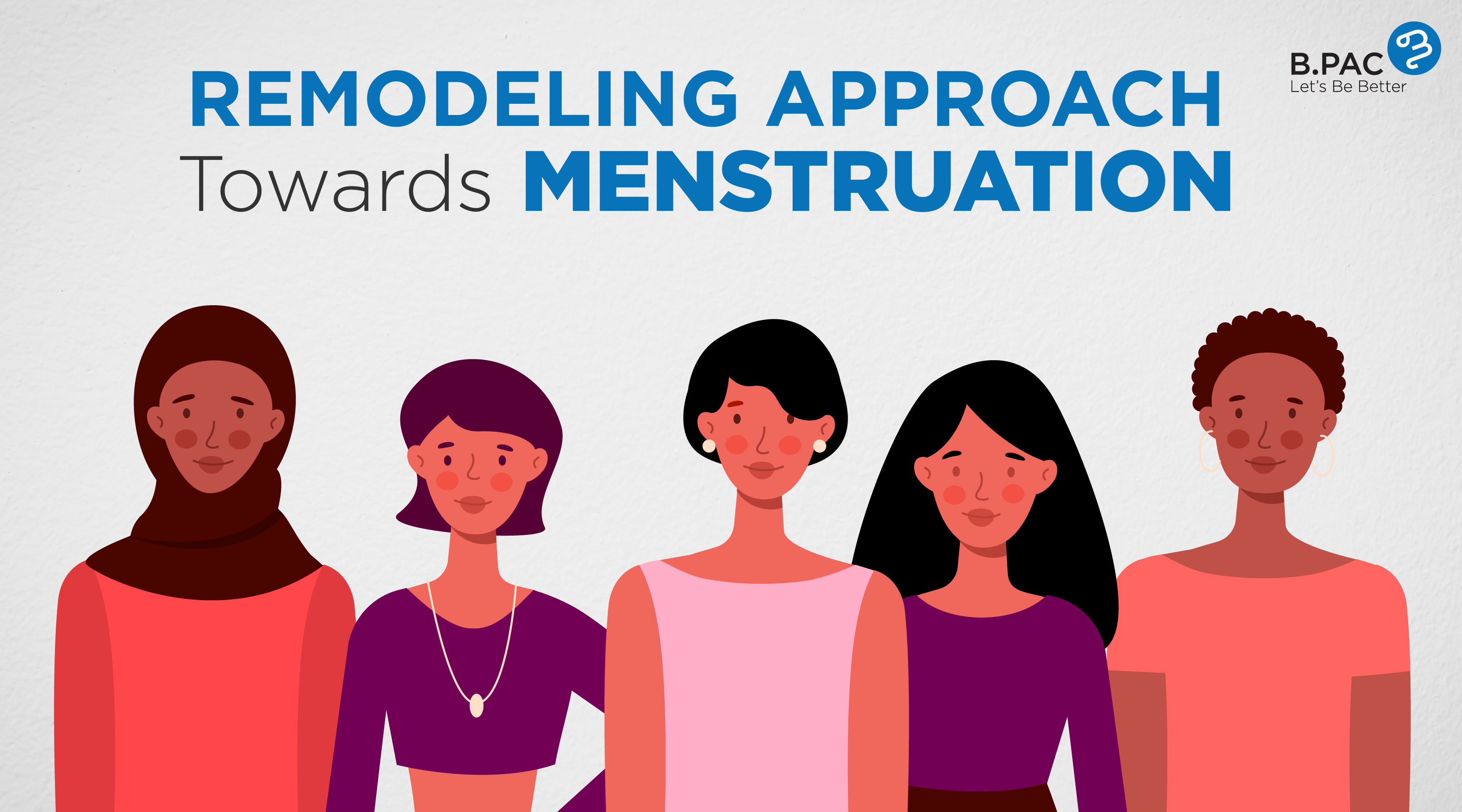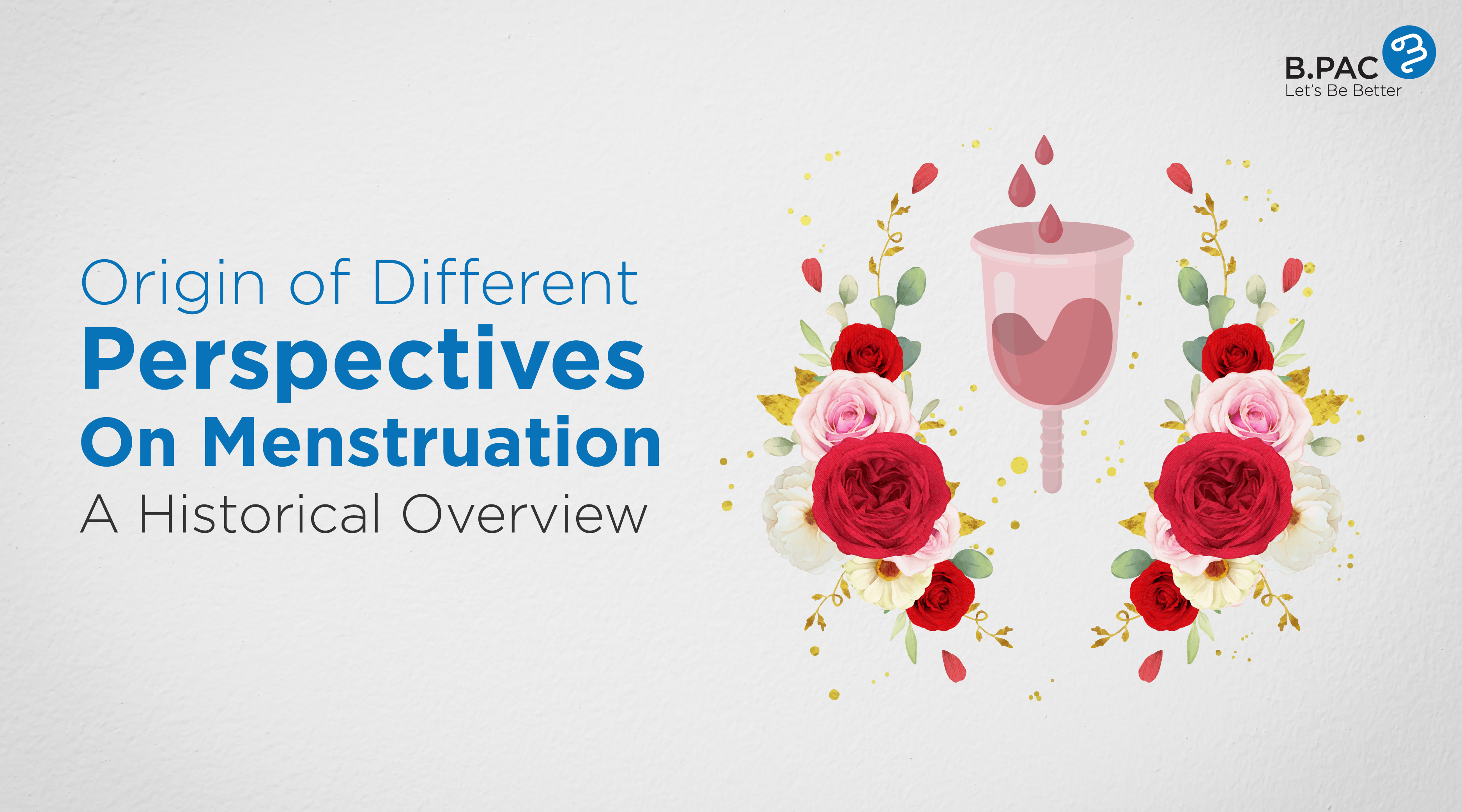“Menstrual blood is the only source of blood which is not traumatically induced. Yet in modern society, this is the most hidden blood, the one so rarely spoken of and almost never seen.”
– Judy Grahn
Vineeta was 11 when she had her first menstrual experience. She was at home preparing for her final exams and panicked when she found herself bleeding. She thought she was about to die, since she had no idea about menarche and ended up flunking her exams. Due to lack of information compounded by social stigma & beliefs, her first period turned out to be a life altering traumatic event. She gets barred from attending ceremonies and even entering certain rooms at home, which slows down her day-to-day activities. Now in her late 20s, she is struggling to find a job in a gender biased society ruled by preconceived notions that women are not fit for jobs as they menstruate and bear children as that is considered as a liability. Vineeta’s story is neither strange nor singular in rural or urban India.
What exactly is Menstruation after all?
Menstruation is a biological occurrence in a woman’s body, which takes place when the lining of the uterus breaks down and leaves the body accompanied by blood, tissues & nutrients. Menstruation is essential as it helps to protect and preserve the uterus against colonization by pathogens. A regular menstruation is a clear indication that the reproductive system is on track. It is common for every woman to experience menstruation differently but the majority of them notice changes in their body approximately 2 weeks before the cycle, this is called Premenstrual Syndrome or PMS which includes back pain, mood-swings, abdominal cramps, acne & insomnia.
Apart from the physical problems, menstruation also has become a social dilemma in developing countries like India. Menstruation being a hushed up topic is often avoided in normal discussion because it is considered humiliating and sounds weird to men & boys in communities. Despite being a normal biological process, 64% of women find it difficult to discuss their periods with their male friends. Lack of awareness & education has created myths in minds of people who consider girls impure & unhygienic during menstruation. They are not allowed to visit temples, enter certain rooms or even cook food. They also face issues in the workplace where they constantly have to cover-up the fact that they are menstruating to avoid embarrassment. As per an article by Time, a female employee from U.S was subjected to gender discrimination and was fired from her job because of heavy period leak. Due to all these factors menstruation collectively takes a toll on a female body, both mentally & physically lowering their overall self-esteem & causing anxiety.
The widespread negative perceptions & restrictions surrounding menstruation contribute largely to gender inequities, resulting in India ranking in 125th position out of 151 countries in the HDI Gender Inequality Index.
Let’s talk numbers
As per UN Women worldwide statistics, 12.8% of women & girls live in period poverty & an astonishing number of 1.25 billion women have no access to proper menstrual hygiene. Another article by Voice of Youth suggests, 3.4% of African prisoners are forced to go on their monthly periods without any sanitary napkins! The lack of affordable sanitary products has resultant effects on women and girls health, economic, power dynamics in relationships and the height of it all leads to increase in gender inequality. As per a report by longdom.org, a study by UNICEF shows none of the girls from Pakistan know menstruation occurs in the uterus, not in stomach or intestines. Same study also shows 10% Indian girls believe menstruation is a genetic disease. A publication on case study of Masvingo district, Zimbabwe by researchgate.net shows Menstruation Hygiene Management (MHM) is a growing gender issue & a critical component which has not been prioritized in schools resulting in many girls being exposed to health hazards in the school community.
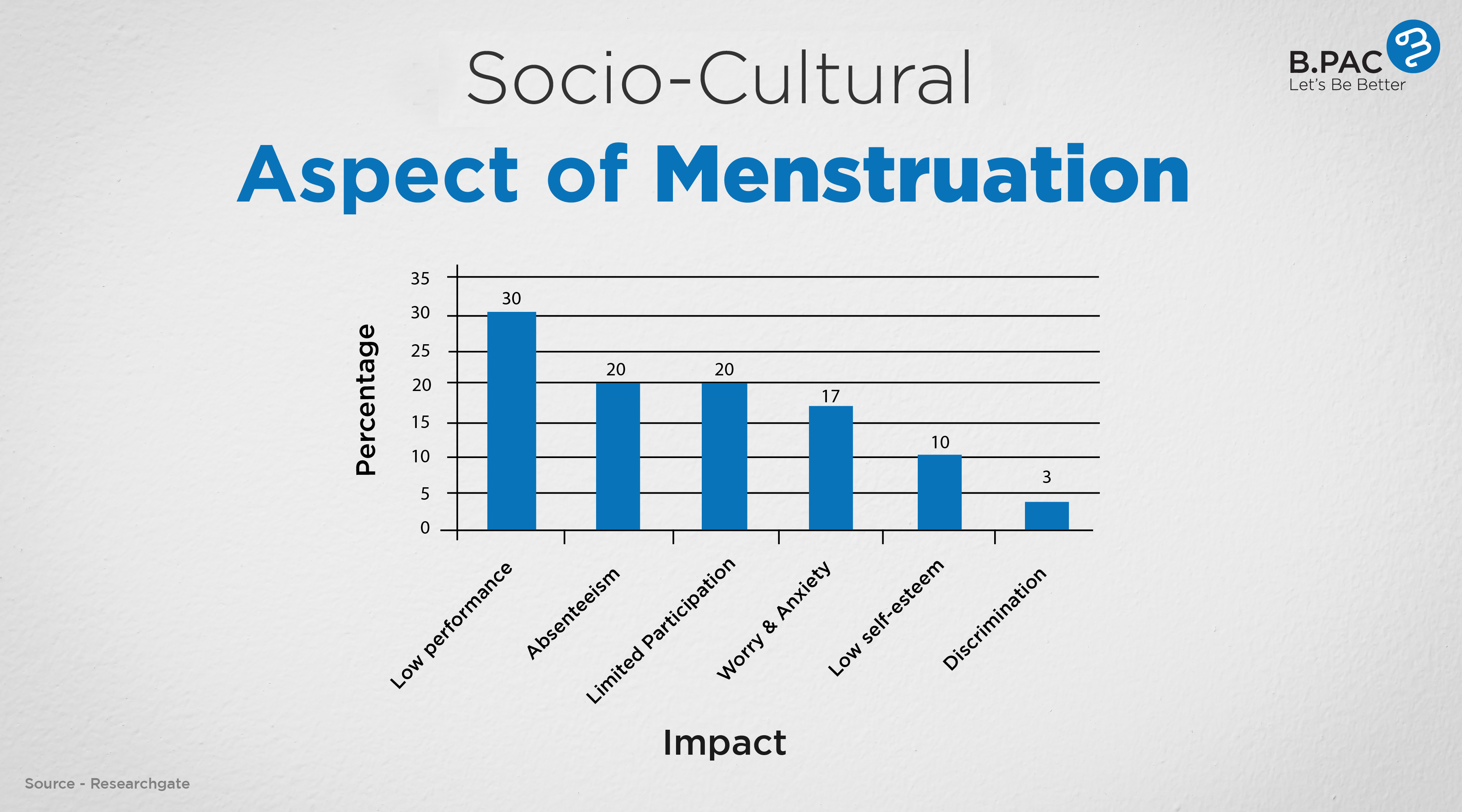
As per statistics by Dasra, only 48% of the adolescent girls population in India are aware of menstruation prior to their menarche. The lack of conversation about menstruation is primarily due to the stigma surrounding it & this unpreparedness leads to unavoidable fear and anxiety. According to another report from 2014 by Dasra titled Spot On, approximately 23 million girls drop out of school annually due lack of information, improper menstrual hygiene facilities & logical awareness of menstruation. The report also showed a whopping 70% of mothers with menstruating daughters considered menstruation dirty and impure. Another survey conducted by National Family Health during 2015-2016 estimates that only 36% of women in India use sanitary napkins, i.e. 121 million women out of the 336 million women!
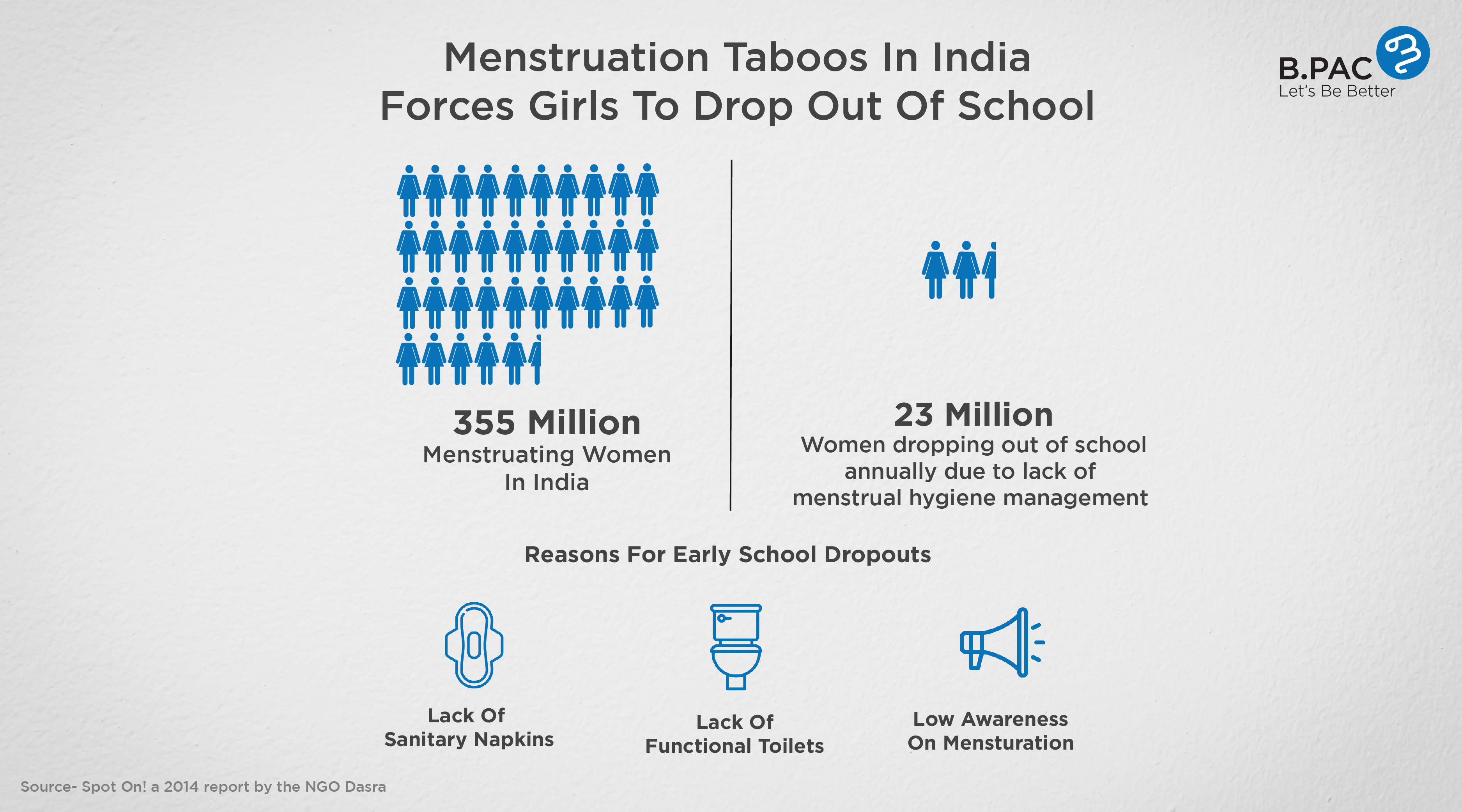
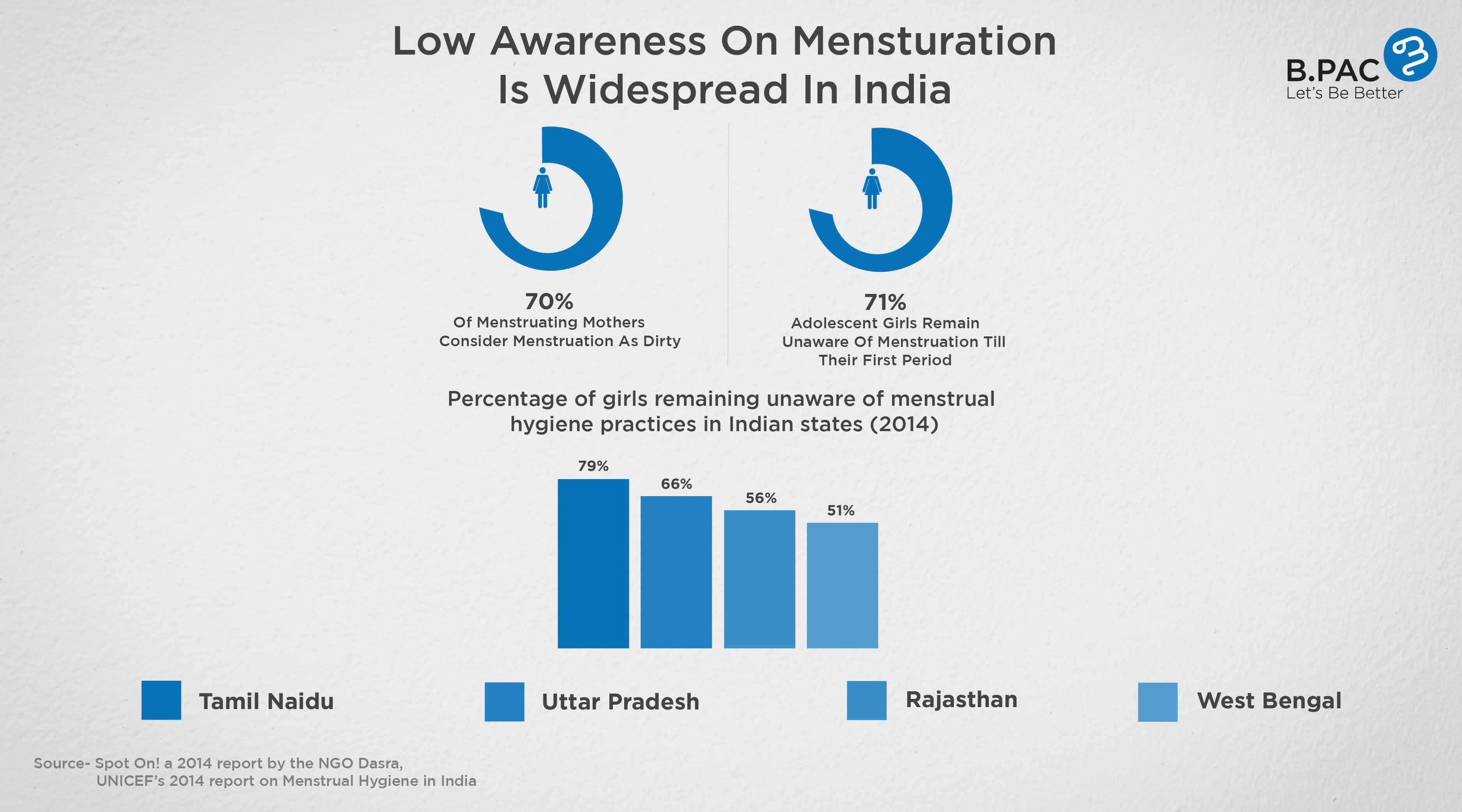
Menstruation around the globe:
No matter where a woman is from, there’s a good chance that she will be overburdened by endless stigma & misconceptions surrounding menstruation. It’s perplexing to know that despite thousands of years of evolution, humans are still not used to the process of menstruation, sight of blood, pain & odour. Menstruation certainly shouldn’t be a mystifying phenomenon as it’s a crucial part of the birth cycle. Here are a few myths & practises across the world which women are subjected to, during their menstruation.
Afghanistan: Women from this country are encouraged to not wash their private areas during menstruation, as it might lead to infertility. This myth has made reproductive tract disorder a common issue among Afgani women.
Bolivia: School girls are often seen carrying soiled sanitary napkins inside their bags because they are taught menstrual blood can cause cancer if mixed with other trash.
Cree Nation: On contrary, for Cree, one of the largest Canadian indiginious people celebrate menstruation and consider it sacred. Girls are encouraged to live in a separate lodge, observe fast & indulge in creative activities.
Egypt: Menstruation in Egypt is known as “ma’ib” which translates as shameful. Egyptian girls are not allowed to use tampons or menstrual cups because of fears that they could break hymen and lose virginity.
Japan: A longstanding japanese tradition dictates women can’t be sushi chefs as their sense of taste is thrown off by menstruation. However, women are fighting back and opening their own restaurants to bring an end to the damaging myth.
Kenya: For women in Kenya, sanitary napkins are luxury items. Due to period poverty & lack of awareness women resort to leaves, sticks and rags to manage their periods.
Malawi: In this southeastern region of Africa, the taboo against menstruation is so strong that parents do not even talk about it and prevent girls from meeting boys as they are fertile.
Nepal: Rural nepalese women have it worse as they are forced to live in a separate shed, endure the natural elements and go without food & water. This tradition of “Chaupadi” was abolished in 2005, yet can be seen practising in many areas.
India: In rural India, menstruation is embedded in myths & taboos & due to long standing religious beliefs, it is often considered impure. Women are subjected to many restrictions like they cannot visit holy places, worship, touch certain food or enter certain rooms. Due to period poverty, women from rural areas often use rags, ash and clothes during menstruation.
It’s time to talk!
Menstrual issues have become a monumental problem worldwide, which requires proper addressing and solution. Girls miss school, work, and important life events either due to stigma and superstitions or because they cannot afford sanitary products to practice menstrual hygiene. In societies where women empowerment is frequently discussed, there exists a faction of the female population that is still battling against the taboo and struggling for basic needs. It is essential to understand; one cannot empower women without normalizing menstrual hygiene, which is primarily a hushed-up topic and considered women’s business.
The silver lining here is that with the surge in digital platforms and social media, awareness is already rising. People are becoming more conscious and liberating themselves from unscientific beliefs. Having said that, stigma still persists, and we still have miles to go. Several NGOs and government organizations are now taking measures to address the gap in gender inequity & Menstrual Hygiene Management (MHM) by providing hygiene products in developing countries, spreading awareness, abolishing baseless practices and promoting education. Menstruation though considered as a cultural taboo, needs consideration and engaging communities to ask questions, share experiences & discuss openly without hesitation. It is now a definite need of the hour to initiate more conversations about periods to de-stigmatise and normalise. Let us do our part to end the taboo and eradicate superstitions by educating and spreading awareness, so every woman can embrace their cycles unapologetically.


